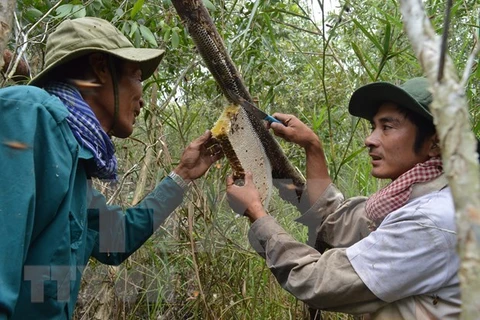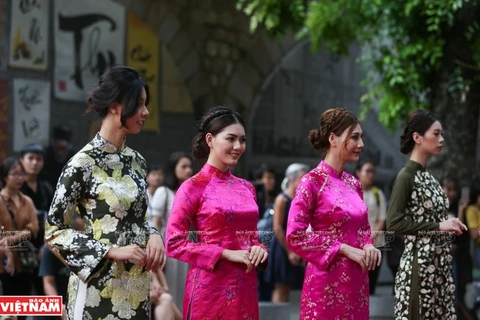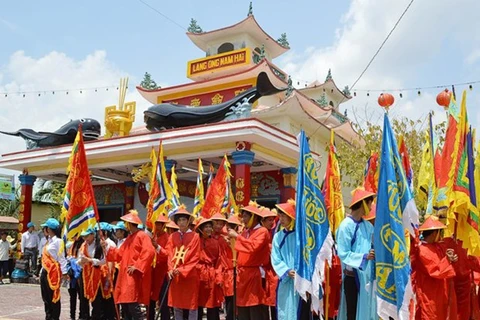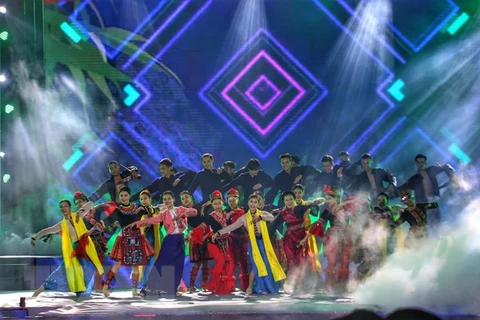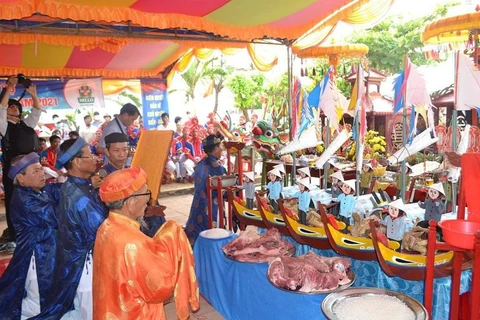Hanoi (VNA) - The Mekong Delta province of Dong Thap recently released a plan on preserving and bringing into play the art of “Don ca tai tu” music and song and “Ho Dong Thap” (Dong Thap singing), both of which are national intangible cultural heritages, so as to improve awareness and raise a sense of responsibility in the community and the political system regarding the task.
Not only a national intangible cultural heritage, “Don ca tai tu” music and song was inscribed on UNESCO’s Representative List of Intangible Cultural Heritage of Humanity in 2013.
Evoking people’s lives and work on the land and rivers of the Mekong Delta, it is an indispensable part of spiritual activities and the cultural heritage of local people and helps to foster amateur cultural activities.
Meanwhile, “Ho Dong Thap” is a type of folk singing that reflects the thoughts and sentiments of local residents.
Authorities have worked on studying and revitalising the art. In particular, training courses have been held in all district-level localities, while classes and extra-curricular activities have been organised at all schools province-wide so as to inspire a love among students for the cultural heritage.
Ngo Hoang Viet, Deputy Director of the centre for culture, sports, and radio broadcasting in the province’s Cao Lanh city, said 47 “Don ca tai tu” clubs with 530 members have been set up around town.
Vice Chairman of the Dong Thap provincial People’s Committee Doan Tan Buu noted that local authorities are striving to have “Don ca tai tu” and “Ho Dong Thap” clubs established in 50 to 70 percent of all communal-level localities.
They are also encouraging each commune, ward, and township to form one club and maintain festivals on the arts annually at the provincial level and biennially at the district level.
The province is also stepping up communications in the media to help turn “Don ca tai tu” and “Ho Dong Thap” into typical tourism products of Dong Thap./.
Not only a national intangible cultural heritage, “Don ca tai tu” music and song was inscribed on UNESCO’s Representative List of Intangible Cultural Heritage of Humanity in 2013.
Evoking people’s lives and work on the land and rivers of the Mekong Delta, it is an indispensable part of spiritual activities and the cultural heritage of local people and helps to foster amateur cultural activities.
Meanwhile, “Ho Dong Thap” is a type of folk singing that reflects the thoughts and sentiments of local residents.
Authorities have worked on studying and revitalising the art. In particular, training courses have been held in all district-level localities, while classes and extra-curricular activities have been organised at all schools province-wide so as to inspire a love among students for the cultural heritage.
Ngo Hoang Viet, Deputy Director of the centre for culture, sports, and radio broadcasting in the province’s Cao Lanh city, said 47 “Don ca tai tu” clubs with 530 members have been set up around town.
Vice Chairman of the Dong Thap provincial People’s Committee Doan Tan Buu noted that local authorities are striving to have “Don ca tai tu” and “Ho Dong Thap” clubs established in 50 to 70 percent of all communal-level localities.
They are also encouraging each commune, ward, and township to form one club and maintain festivals on the arts annually at the provincial level and biennially at the district level.
The province is also stepping up communications in the media to help turn “Don ca tai tu” and “Ho Dong Thap” into typical tourism products of Dong Thap./.
VNA


